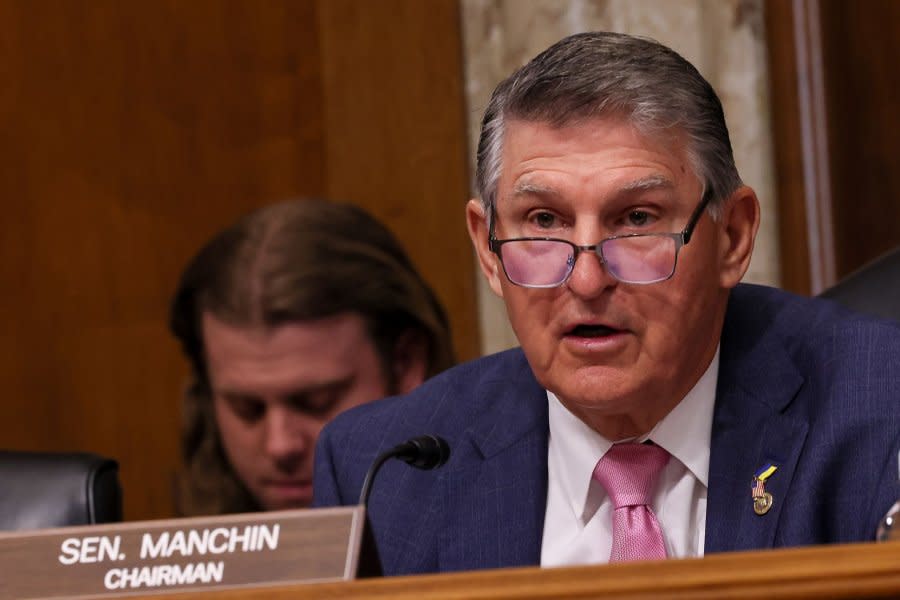Fossil fuels will be needed to power electrical grid longer, Senate panel says

- Oops!Something went wrong.Please try again later.
WASHINGTON, May 21 (UPI) Technologies such as artificial intelligence and electric vehicles have increased demand on America's power grid so much that members of the Senate Committee on Energy and Natural Resources said Tuesday that the grid will need to rely on fossil fuel longer than expected and delay a transition to cleaner energy.
"You can't take something off before you have something equally as good, if not better, to replace it with," said the committee chairman Joe Manchin, D-W.Va..
The Biden administration's climate change agenda prioritized quickly weaning off fossil fuels, which in 2023 supplied 60% of the nation's electricity.
However, an unanticipated spike in electricity demand followed the AI revolution and the Biden's administration's historic push to increase industrial manufacturing for technology like semiconductors, which power everything from the Internet to electric vehicle car batteries.
Earlier this month, the Federal Energy Regulatory Commission enacted two rules that would address the need to plan and pay for the growing electricity demand placed on the grid.
However members of the Senate committee said the rule does not do enough to keep the lights on and lure new manufacturing to the United States.
"Let me be clear, these rules are using the tools FERC currently has, and is not a replacement for congressional action," Manchin said. He and Sen. John Barasso, R- Wyo., are drafting bipartisan legislation to fill the gap.
Energy reliability plays a large role in deciding where manufacturers will expand production, according to Scott Gatzemeier, corporate vice president of front end U.S. expansion at Micron Technology. He said it was a large factor when deciding to build a project in New York.
"One of the reasons we decided to go there is because there's a nuclear power plant 40 miles directly north of our facility with a direct client connection to the 345 [klilovolt] substation across the street -- one of the most reliable substations on the grid," Gatzemeier said.
Micron, one of the leading producers of semiconductors, is set to receive more than $6 billion in direct funding via a 2022 law passed to boost semiconductor production in the United States to outcompete China.
While this money will fund its projects in New York and Idaho, Micron was seeking more funding for its factory in Manassas, Va. The company also has pledged to invest more than $40 billion over the next decade to expand operations.
Even though Micron took measures to decrease its energy consumption, the company's electricity use was projected to increase as demand grows for U.S.-made semiconductors to replace imports from China.
"The stakes couldn't be higher. In fact, many believe that the race for artificial intelligence with Communist China will be more consequential than the space race with the former Soviet Union," Barasso said. He noted that prohibiting reliance on fossil fuels would put America at a great disadvantage.
With the increased growth in technology and manufacturing sectors also comes an increase in natural gas, the largest source of U.S. electricity.
"Our natural gas assets in the United States have experienced all-time delivery records, and our natural gas deliveries to power generators are up 11% compared to 2023, setting a record," said Michael Tadeo, spokesman for TC Energy, a natural gas pipeline company that operates more than 60,000 miles of pipe through North America.
"The demand for sustainable, reliable electricity is projected to grow even more in the years to come and natural gas is critical to meeting that increased demand," Tadeo said.
The Biden administration has prioritized curbing climate change, but its goals for slashing emissions did not anticipate a major increase in electricity use, fueled in part by other parts of Biden's agenda.
"Meeting this demand growth may prove to be one of the greatest challenges -- and also opportunities -- of the 21st century for our citizens, our economy, and the defense and security of our country," Manchin said in a statement.

